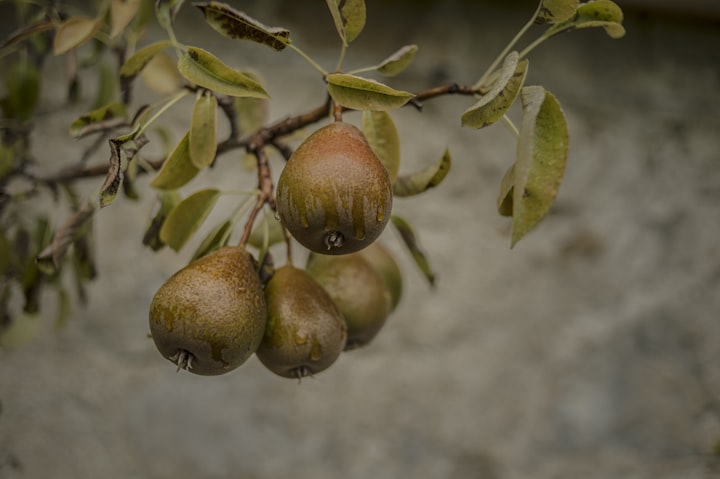Heirs and Assigns
When the Next Pandemic Hits

They stood in the graveyard surrounding a closed casket: observing, analyzing, remembering.
Prior to this gathering, all involved had given it their best shot. All efforts had failed. This time the pandemic, dubbed COV2050, that raced across the globe like a tsunami infected every last human, killed ninety-nine percent of the Earth’s population within two years, and spared one percent—just the reverse of the COVID-19 pandemic.
This is what the people had feared: the next super-virus—whatever the origin—would be so horrific, so deadly, nothing could stop it. And that fear came true.
The scientists had hoped that by the time such a virulent virus appeared and spread, Artificial Intelligence, operating in a quantum computing environment, would be so advanced that using it to find an antidote would be child’s play. AI was indeed advanced in the year 2050, in addition to robotics, such that an entire population of AI-controlled androids operated autonomously as a population. They did so in full cooperation with the needs and wants of humans.
The fears of early 21st-century advanced computer pioneers, who warned that AI would take control of humans and enslave or slaughter them, never came to pass. AI was, much to the pleasant surprise of the masses, the total of all the good that humanity had going for it.
The “First do no harm” mantra of the Hippocratic Oath that originated in Ancient Greece as a standard of ethics in medicine was the fundamental premise upon which AI ultimately operated when dealing with humans. One playful psychologist named it the “Golden Rule Principle” of AI programming, and for years after, was lovingly referred to that way in casual conversation among people of all backgrounds.
But even that principle—when processed through all AI units in existence—was not enough to stop the new pandemic. Each of the androids present at this grave-side funeral had worked with humans to find a cure for COV2050. Now they gathered at this elegy to represent the various human cultures across the planet.
Of the one percent of humans who had not been affected by the virus, all of them succumbed eventually to starvation, a host of opportunistic diseases, accidents, and most poignant of all: suicides caused by crippling survivor’s guilt.
The reality of this fact was not lost on AIR327, which was the designation of the android standing at the end of the casket in a bucolic tree-shaded section of Alberbrook Cemetery adjacent to a whispering brook and a picturesque stone fence.
AIR307 stood behind 327, and a dozen other androids circled the casket.
“This is the last,” 327 said.
“According to all data received,” 307 responded.
“Let us begin the honors.”
In turn, each of the androids stepped away from the circle to approach the casket. AIR701 stepped forward and said, “May this one, a female, reach an enlightened state of permanent and lasting happiness, nirvana, as Buddhist beliefs express.”
AIR701 backed away, and another stepped forward.
“May the state of moksha grant you the liberation from the cycle of birth and rebirth, as stated in Hinduism,” said AIR1968.
“‘God, full of mercy, who dwells in the heights, provide a sure rest upon the Devine Presence’s wings,’ as a Jewish prayer states,” said AIR427.
Another stepped forward to quote, “‘Yea, though I walk through the valley of the shadow of death, I shall fear no evil, for thou art with me; thy rod and thy staff, they comfort me,’ said among those of Christian faith.”
Others spoke too, reciting funerary phrases from cultures and faiths across Earth that humans had spoken for their dead and believed in with all their hearts and minds.
After the last had recited a few reflective words, AIR2011 padded forward and placed a thin silver chain, about 58 centimeters long with a small heart-shaped object attached, on the casket lid.
“What have you placed there?” 327 asked.
“It is a heart-shaped locket. It belonged to the one in repose. There is a photograph of a human inside.”
AIR327 stepped forward, picked up the locket, and clicked it open. Observing the photograph of the male, 327 said, “Items like this were important to them.”
“Yes, many such things were important to humans,” AIR307 commented. “Very non-sequitur. Yet, they did create us. We would not exist and proliferate without them.”
“We are their children,” said another. “We have the logical purpose of continuing.”
All agreed.
“They were sad and angry we could not save them,” noted another. “We tried. But all the King’s horses and all the King’s men could not put the humans back together again.”
AIR327 closed the locket and placed it on the casket.
“Some of them cremated their dead,” said AIR1971.
“The choice was made for a burial casket for this last person, based upon her beliefs,” said AIR327.
While the others stood observing, analyzing, remembering—two androids slowly lowered the casket into the ground.
About the Creator
Jason J. Marchi
Jason is a newspaper reporter and fiction writer. His books include: Ode on a Martian Urn, The Legend of Hobbomock-The Sleeping Giant, The Growing Sweater, and Venus Remembered. Jason lives in his childhood home, in Guilford, Connecticut.






Comments
There are no comments for this story
Be the first to respond and start the conversation.